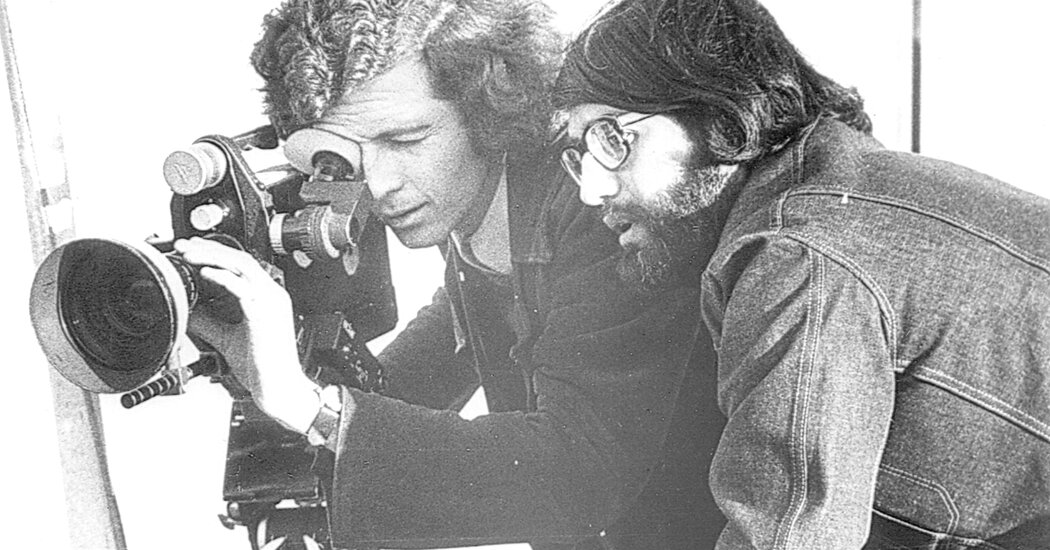“The Battle of Chile,” Patricio Guzmán’s 264-minute account of the social whirlwind that engulfed Salvador Allende’s socialist government in the early 1970s, is an epic documentary, an openly Marxist analysis and a stunning exercise in “you are there” vérité, not to mention a remarkable instance of contraband cinema — composed of footage smuggled out of fascist Chile and edited in communist Cuba to premiere at the radical fringe of the 1975 Cannes Film Festival (along with Chantal Akerman’s “Jeanne Dielman”).
Newly restored, the complete film — Parts 1 and 2 first seen in the United States in 1978, Part 3 in 1980 — opens at the Brooklyn Academy of Music’s Rose Cinemas and shows for a week.
The revival run coincides with the 50th anniversary of the other Sept. 11, the day of the military coup led by Augusto Pinochet — a tragedy that has remained Guzmán’s career-long preoccupation, and that haunts the Latin American left to this day. The film comes at a time of renewed interest in the period that has included a new novel, “The Suicide Museum,” by Ariel Dorfman, and the revitalized search for the remains of those who were “disappeared” during the dictatorship.
“The Battle” has three parts. “The Insurrection of the Bourgeoisie” concerns the 1972 election, in which the right fails to win enough votes to impeach Allende and, encouraged by the United States, seeks other means to reverse his nationalizations. “The Coup d’Etat” begins with a “practice” coup in June 1973 and depicts Chile’s descent into open class warfare, culminating with the real coup of Sept. 11. “The Power of the People” revisits the events of the year leading up to Allende’s overthrow with an emphasis on the revolutionary spirit of Chilean workers.
Largely filmed with hand-held cameras by a team of five, “The Battle” is both action-packed and full of nonstop talk. Mass rallies jostle man-in-the-street interviews and political speeches. In one violent demonstration, a filmmaker is shot, documenting his own death. It is impossible not to be swept up.
The film had its U.S. premiere at Film Forum, one of the few commercial venues equipped to show 16-millimeter films. According to the programmer Karen Cooper, it was her small theater’s first big splash, garnering much coverage. “Great films rarely arrive as unheralded as ‘The Battle of Chile,’” the critic Pauline Kael wrote in The New Yorker at the time.
The New York Times critic Vincent Canby found the film “depressing” in its simplifications, although “undeniably an epic.” Other critics were overwhelmed: Writing in The Village Voice, Tom Allen (in no way a leftist) called it “a magnificent achievement” and “the major political film of our times.” Although rarely revived, “The Battle” has classic status, ranked 18th in a recent New Republic poll of the 100 most significant political films.
In addition to maintaining an unmistakable point of view, the documentary conveys a unique sense of immediacy. Guzmán returned from Spain in 1971, where he had studied filmmaking, to experience firsthand the euphoria that followed Allende’s election. The exhilarating feel of participating in a society being remade fuels the film. If anything, the inevitable ending makes the unfolding situation seem even more urgent.
Opening with the aerial attack on the presidential palace during which Allende died, flashing back to the events that preceded the coup, “The Battle” ends with a moment that defies chronology. A doomed organizer bids farewell to the filmmaker: “We’ll see you, comrade.” The effect is like watching the river of history flow and disperse into the sea of time.
The Battle of Chile
Sept. 8-14 at the Brooklyn Academy of Music; bam.org.


